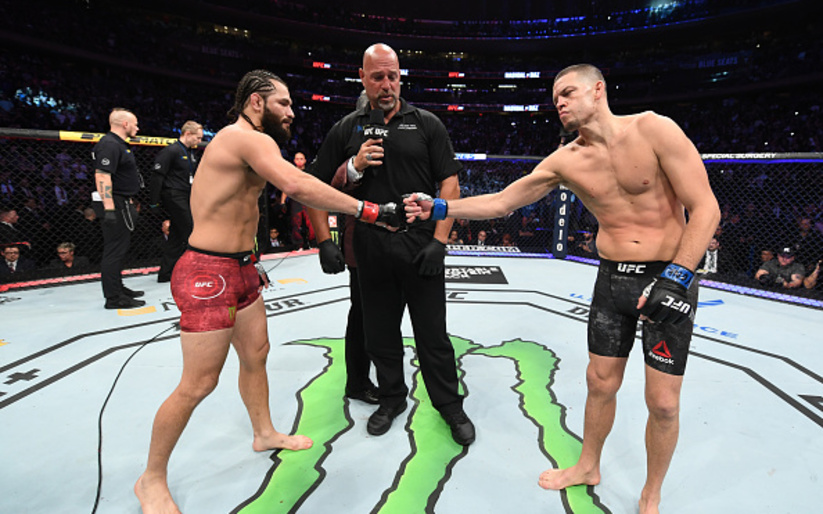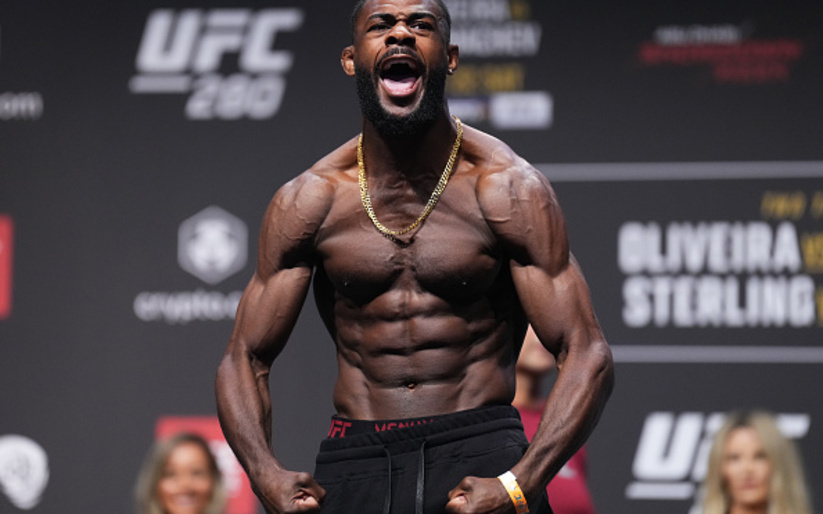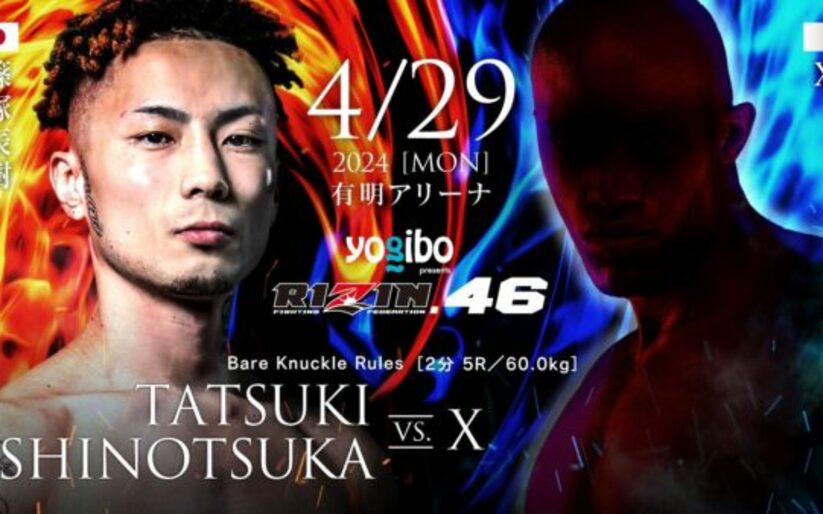“Big Daddy” Gary Goodridge is one of the true MMA pioneers. The Barrie, Ontario native made his UFC debut at UFC 8, where his elbows from a crucifix position on Paul Herrera have been constantly immortalized in MMA highlight videos. He was a star in Japan during the early Pride era, as well as a feared kickboxer in K-1. His autobiography “Gatekeeper”, written over the course of two years with friend Mark Dorsey, looks back at his career with unflinching honesty and candor.
For all his wars in the cage and ring, against legends such as Don Frye (who Goodridge calls the toughest man he ever faced), Mark Coleman, Fedor Emelianenko and Antonio Rodrigo Nogueira just to name a few, the battle he’s currently waging may be the most difficult of his career. Goodridge has been the first high-profile MMA fighter to have been diagnosed with chronic traumatic encephalopathy (CTE), or pugilistic dementia.
Brain injuries have been a hot topic in contact sports recently. The NHL has had their marquee player, Sidney Crosby, sitting out the better part of a season and a half with concussion-related problems. The brain of longtime enforcer Bob Probert was examined during his autopsy and was found to be suffering the effects of CTE. Another enforcer, Derek Boogard, was found to have early signs of CTE after his brain was examined after his tragic death last summer.
Goodridge remains very positive about life despite his prognosis. He talks with an animated voice about his book, hoping to arrange a proper book launch for Japan as well as his native Trinidad. He bristles at the thought of looking back with regret or retiring sooner than he did.
I live with no regrets. I love the way I’ve lived. I lived well enough. I’ve done the things I wanted to do. I feel good. I’m happy. You know, moving forward. It’s that simple. You know, I’ve lived a good life and I’m still alive!
It is his days in Japan that he looks back at with most reverence. Watching UFC’s recent return to Japan filled him with memories of the Saitama Super Arena and hearing a crowd of thousands screaming his name. He “wishes he was back there”, but at the same time is unafraid to point out the seedy underbelly of his time in Pride. Fight-fixing was rampant during the early days of the promotion, he alleges, with the Mark Coleman-Nobuhiko Takada fight being the most egregious example. Goodridge insists he never took a bribe, although looking back on the one he was offered he wishes he did.
Coleman and Takada were the worst match. But in order to boost Takada over,.. yeah, they did do that. They looked after the sport to move it ahead the best way they knew how. But yes, fights were fixed. I was right there. Nobody ever fixed a fight with me. One fight that I was offered a bribe to lose, I wish I did take the bribe. In the Pride fight against Ogawa, I was offered a bribe to lose to him. But was his corner people asked me on camera if there was any mention of money they were going to give me. They offered me a bribe to lose to him. So, what I did, I was like ‘no, I don’t want the bribe, I want to fight.’ So, in the actual fight, the promoter of Pride told me, he was like ‘Beat this guy. This guy’s on a teeter-tottering scale. If you beat this guy you go up. You drive straight to the top. If you lose to this guy. You go back in the bin.’ So, I was very excited by the time I fought this guy. I went up to battle in in the arena. I went in there to tear him a new asshole. I got over there, I blew my wad real quick. So, I ended up losing the fight.
Goodridge can speak about his glory days with great clarity, but struggles with his short-term memory as a result of his condition. A condition he lays much of the blame for at the feet of K-1 and their brand of kickboxing that puts most of the focus on knockouts. Compared to kickboxing, MMA has much less blows to the head and thus less head trauma for its participants.
It is his symptomatic struggles with memory loss and impulse control that frustrate him the most. In addition to the various medications he takes daily, he works regularly with Brain Injury Services in Barrie to preserve his cognitive skills as much as possible and teach him coping mechanisms to deal with the frustration.
What the process is, is they try to give you other ways to cope with things. Like, I have anger issues because of my brain injury. I have impulses. I’m very impulsive because of my brain injury. I don’t remember things on a day to day basis, that people, that you would remember. You know, so my long-term memory is impeccable. My short-term memory is next to nothing. So, for now, half of this conversation, I will forgotten that I’ve talked to you. Brain Injury Services here in Barrie, they go through all sort of different things with me for anger issues, for memory. Big thing for me is memory. I drop everything out of my head, so I write everything down. I have an iPhone. It’s one hundred percent, it’s my brain. My iPhone is my brain. Without this iPhone I can’t get along.
Goodridge is a remnant from the early days of the sport, where regulation was lax and oversight was minimal if it was overseen at all. He credits today’s UFC for working with athletic commissions to impose a singular set of rules and guidelines to protect fighters, as well as working on a forward-thinking concussion policy. He is still a fan of the sport, and calls light heavyweight champion Jon Jones his favourite fighter to watch. He also has advice for younger fighters trying to make it in the sport today:
I’d say, take your time. Look, listen, learn. There’s a lot to learn about the sport. And there’s a lot of people, there’s a lot of sharks out there to tell you to do this and do that. Don’t necessarily mean that you’re doing the right thing. Pay attention to what you’re doing. And you can’t trust anyone. And the monies is in this sport have bounced incredibly. So as, where as I was fighting for twenty-five, for fifty thousand dollars a fight, for one hundred thousand dollars a fight, guys very soon, if not already do have many million dollar fights.
Goodridge’s story veers between an inspirational “Rocky” like saga and cautionary tale. The wars in the ring and cage that won over so many fans are the reason why he faces the struggles he does today. But Goodridge’s optimism is unwavering. He asks not to be looked at with sorrow, but to be remembered as a gladiator that went out on his shield and someone who still enjoys each day as much as he can.
I thought [about] what I did to myself. I live my life. Do what I want, right? So, I lived. But, I hate the position that I’m in with my family and you know all these other issues I’m having. But, I lived properly. I live properly. I love me. And I keep going forward.
To order Goodridge’s book “Gatekeeper” from Amazon, click here.
____________________________________________________________________________________
Follow @CarlinBardsley on Twitter and keep up with the latest news by following @MMASucka on Twitter and on Facebook



This story is amazingly touching. To see a strong man be even stronger with his personal struggles than he was in physical fights, is inspiring. Knowing that despite everything he’s happy with the life he’s lived and continues to love himself despite all he’s endured, is moving. Great story yet again, Mr. Bardsley.